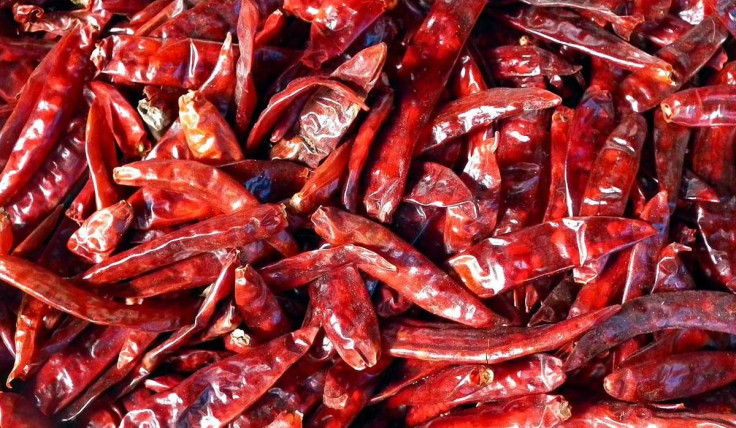Hot chilli peppers hold potential breakthrough in treatment for obesity

Scientists have discovered that eating hot chillies may help put a halt to overeating by creating a sense of fullness, in research that could prove to be a breakthrough on treating obesity. Researchers from the University of Adelaide, Australia, say that a high-fat diet may dampen the receptors in a person's stomach that tell them when they are feeling full.
However, a team led by Associate Professor Amanda Page, Senior Research Fellow in the University of Adelaide's School of Medicine have scrutinised the link between the hoy chilli pepper receptors (TRPV1) and feeling sated and found that the spicy fruit could help regulate a sense of fullness, as outlined in a paper published in PLOS One.
Page says: "The stomach stretches when it is full, which activates nerves in the stomach to tell the body that it has had enough food. We found that this activation is regulated through hot chilli pepper or TRPV1 receptors.
"It is known from previous studies that capsaicin, found in hot chillies, reduces food intake in humans. And what we've discovered is that deletion of TRPV1 receptors dampens the response of gastric nerves to stretch – resulting in a delayed feeling of fullness and the consumption of more food. Therefore, part of the effect of capsaicin on food intake may be mediated via the stomach. We also found that TRPV1 receptors can be disrupted in high-fat-diet-induced obesity."
Dr Stephen Kentish of the National Health and Medical Research Council (NHMRC) fellow from the University of Adelaide's School of Medicine added that the findings will be the basis for further research. He said: "It's exciting that we now know more about the TRPV1 receptor pathway and that the consumption of capsaicin may be able to prevent overeating through an action on nerves in the stomach.
"The next stage of research will involve investigation of the mechanisms behind TRPV1 receptor activation with the aim of developing a more palatable therapy. We will also do further work to determine why a high-fat diet de-sensitises TRPV1 receptors and investigate if we can reverse the damage."
© Copyright IBTimes 2025. All rights reserved.






















